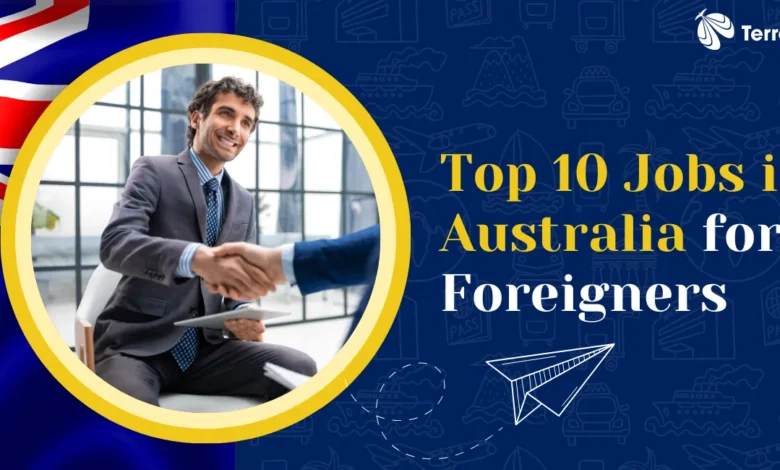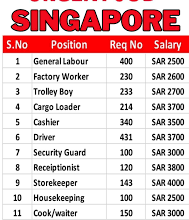Finding Work in Australia Without a Formal Qualification (Legal Pathways)

Australia is a country known for its high living standards, diverse opportunities, and stunning natural beauty, making it an attractive destination for many seeking a new life. While a university degree or vocational qualification often opens doors to skilled migration pathways, it is not impossible to find legitimate work in Australia without formal qualifications. The key, however, lies in understanding the specific visa options available and being strategic about your job search.
Crucial Disclaimer: This guide focuses on legal and legitimate pathways to working in Australia. Attempting to work in Australia without a valid work visa is illegal, carries severe penalties including deportation and re-entry bans, and leaves you vulnerable to exploitation. Always prioritize legal immigration channels.
The Reality: “No Qualifications” Doesn’t Mean “No Skills or Experience”
When we talk about “no qualifications” in the Australian immigration context, it generally means not having a university degree or a formal trade certificate that is recognized for skilled migration. However, Australia still values practical skills, work experience, and a willingness to work in industries facing shortages. Your life experience and informal training can be your most valuable assets.
Key Visa Pathways (and where “no qualifications” might fit):
Australia’s visa system is complex, but here are the most relevant categories for individuals without formal qualifications:
-
Working Holiday Visas (Subclass 417 & 462):
- What it is: These visas allow young adults (generally 18-30, or 35 for some countries) from eligible countries to have an extended holiday in Australia and work to fund their travels. Work is usually temporary or casual.
- Qualifications: No formal qualifications are typically required, but you must meet age limits, health, and character requirements, and have sufficient funds for your initial stay.
- African Eligibility: As of current policy, African countries are generally not eligible for the Subclass 417 visa. However, some (e.g., South Africa, Ghana, Egypt, Mauritius, Morocco, Rwanda, Tanzania, Tunisia, Uganda, Zambia, Zimbabwe, depending on reciprocal arrangements) might be eligible for the Work and Holiday (Subclass 462) visa, often with specific caps or educational requirements (e.g., tertiary qualifications for some countries). It is critical to check the Department of Home Affairs website for your specific country’s eligibility.
- Job Types: Common jobs include fruit picking, farm work, hospitality (wait staff, kitchen hand, bar staff), retail, cleaning, and general laboring. These often pay well enough to save money.
- The “Foot in the Door”: This visa can be an excellent way to gain Australian work experience and potentially transition to other visas if you find an employer willing to sponsor you, or if you gain skills that then become eligible for a skilled visa.
-
Employer Sponsored Visas (e.g., Temporary Skill Shortage (TSS) visa – Subclass 482):
- What it is: This visa allows Australian employers to sponsor skilled workers to fill positions they can’t find suitably skilled Australian workers for.
- Qualifications for “Unqualified” roles: While many TSS visas require formal qualifications, some occupations on the various skilled occupation lists (e.g., Short-term Skilled Occupation List (STSOL) or Medium and Long-term Strategic Skills List (MLTSSL)) may have “skill level 4 or 5” entries which sometimes allow for extensive relevant work experience in lieu of formal qualifications. This is highly specific to the occupation and requires a skills assessment by the relevant assessing authority to confirm your experience is equivalent to a qualification.
- Key Requirement: You MUST have an Australian employer willing to sponsor you. This is the biggest hurdle.
- Job Types: Examples could potentially include certain trades (if you have demonstrable experience, even without formal certification that is usually required), some hospitality roles (e.g., Chef, where experience is heavily weighted), or specific regional roles under a Designated Area Migration Agreement (DAMA) where concessions on skills and English language might be made for specific regional needs.
- How to find these: Look on Australian job boards (Seek.com.au, Indeed.com.au, Jora.com.au) and filter for “visa sponsorship” or “482 visa.” Network within specific industries (e.g., agriculture, regional hospitality).
-
Labour Agreement Stream (within TSS 482):
- What it is: This is a niche pathway where a specific Australian employer, or an industry body, has a formal agreement with the Australian government to bring in a certain number of workers for specific occupations where there’s a demonstrated and ongoing labour shortage. These agreements can sometimes include concessions on English language requirements or skill levels.
- Qualifications: Again, this depends entirely on the specific Labour Agreement. Some might allow for significant work experience in lieu of formal qualifications for certain roles (e.g., some meat processing, aged care, or regional agricultural roles).
- How to find these: These are harder to find as they are specific agreements. You would generally need to be recruited by an employer who holds such an agreement, or a recruitment agency working with them.
Step-by-Step Guide (for realistic, legal pathways):
Step 1: Research Visa Eligibility for Your Nationality
- Go to the official Australian Department of Home Affairs website: https://immi.home.homeaffairs.gov.au/
- Use their “Visa Finder” tool. Select your country of passport. This will tell you if you’re eligible for a Working Holiday (Subclass 462) visa. This is your most accessible option without formal qualifications.
- If not eligible for a Working Holiday visa, research the Temporary Skill Shortage (TSS) visa (Subclass 482). Specifically, look at the various Skilled Occupation Lists (STSOL, MLTSSL, Regional lists). While many require qualifications, see if any occupations align with your extensive practical experience and note their Skill Level (ANZSCO classification). Some Skill Level 4/5 roles might be considered.
Step 2: Assess Your Skills and Experience (Honesty is Key)
- Even without qualifications, what have you done? Have you worked in hospitality, construction, cleaning, caregiving, agriculture, or any other field that requires practical skills?
- Document your work history with dates, roles, and detailed responsibilities.
- Be ready to provide verifiable references from previous employers.
Step 3: Improve Your English Language Proficiency
- Even for “unskilled” roles, a basic to conversational level of English is almost always a requirement for a work visa in Australia.
- Consider taking an English test (like IELTS or PTE) to demonstrate your ability. A good score always helps your application.
Step 4: Search for Job Opportunities (Strategically)
- Focus on sectors with high demand for practical labor:
- Regional Agriculture/Farm Work: Often seasonal, but many farms need workers. Look at Harvest Trail websites.
- Hospitality: Hotels, restaurants, cafes, especially in regional tourist areas.
- Aged Care/Disability Support: If you have caregiving experience (check specific requirements for these roles, as some might need certifications even if basic).
- Construction/Trades Assistant: If you have experience, even informal.
- Cleaning/Facilities Management.
- Job Boards to use:
- Seek.com.au (Australia’s largest)
- Indeed.com.au
- Jora.com.au
- Gumtree.com.au (for more casual or local jobs)
- Specialized industry job boards (e.g., hospitality recruitment sites, farm work sites).
- Keywords: Use terms like “no experience needed,” “entry-level,” “labourer,” “farm hand,” “kitchen hand,” “cleaner,” “care assistant.” Also, try “visa sponsorship” (though this is more common for skilled roles, some employers with Labour Agreements might advertise this).
- Network: If you know anyone in Australia, ask about job opportunities and potential employers.
Step 5: Prepare Your Application Documents
- Resume/CV: Tailor it to each job. Highlight relevant experience, even if informal. Quantify achievements where possible (e.g., “managed tasks for 10 clients,” “completed projects on time”).
- Cover Letter: Explain why you’re a good fit for the role and your understanding of the job’s requirements.
- References: Prepare contact details for previous employers who can vouch for your work ethic and skills.
Step 6: Understand the Employer Sponsorship Process (If applicable)
- If an employer shows interest, they will need to be an approved sponsor with the Department of Home Affairs.
- They will then need to nominate your position.
- Only after these steps are approved can you apply for the visa itself.
- This process is complex and often costly for the employer, which is why it’s challenging to find sponsorship for jobs not on skilled occupation lists.
Step 7: Consider Education as a Pathway (Long-term Strategy)
- If direct work visa pathways prove difficult, consider pursuing vocational training or a qualification in Australia.
- A student visa (Subclass 500) allows you to study and work a limited number of hours.
- Upon graduation from certain courses, you might be eligible for a Temporary Graduate visa (Subclass 485), which allows you to work full-time for a period, providing a better opportunity to gain Australian work experience and potentially qualify for skilled migration later.
Key Challenges and Realities:
- Visa Restrictions: Without specific skills on the occupation lists or eligibility for a Working Holiday visa, options are limited.
- Employer Willingness: Many employers prefer to hire Australian citizens or permanent residents due to the complexities and costs of sponsoring foreign workers.
- Competition: Even for entry-level jobs, there can be significant competition.
- Cost of Living: Australia is an expensive country. Factor in living costs when considering wages.
While a university degree is often the most straightforward path, demonstrating a strong work ethic, relevant practical experience, and a willingness to learn can open doors in Australia, particularly in sectors where hands-on labor is in demand. Always pursue legitimate visa channels and be prepared for a thorough and often lengthy process.
Source: http://thepressradio.com





